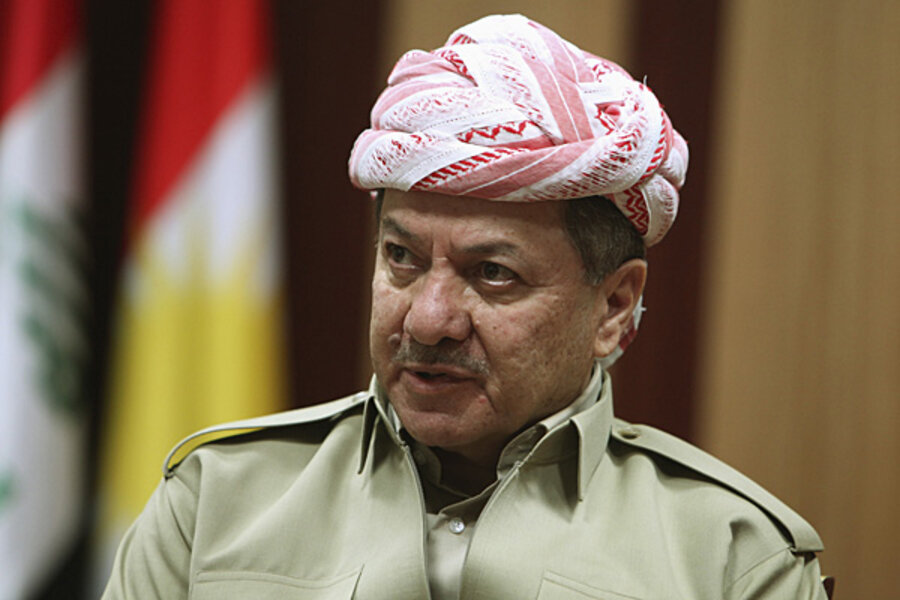Baghdad’s hold on Kurdistan slips further as oil exports begin
Loading...
In what could prove to be an historic turning point for Iraq, the government of Kurdistan – the semi-autonomous region in the country’s north – has delivered its first shipment of oil to the international market, in defiance of the central government in Baghdad.
The move could mark the beginning of greater geopolitical and economic power for Kurdistan and presage a move towards eventual independence.
It comes after years of political deadlock between Kurdistan and the government of Iraqi Prime Minister Nouri al-Maliki over how to manage and share the nation’s oil wealth. The Kurdish Regional Government (KRG) has always objected to political meddling from Baghdad, and has been charting its own path towards developing oil within its borders, an area estimated to hold 45 billion barrels.
The stage for a showdown was set in 2011, when the KRG signed a deal with ExxonMobil that offered much more generous terms than Baghdad offered in its own deals. The KRG went to sign deals with Chevron, Gazprom and Total.
Baghdad maintains that the deals are illegal. It wants any oil exported from Iraq to do so under the banner of the government-owned State Oil Marketing Organization (SOMO), which is charged with distributing all revenues to regional governments. Maliki’s government also wants oil exported from Kurdistan to travel through pipelines owned by the central government.
Kurdistan began doing this in 2009, sending oil to Ceyhan, a Turkish port on the Mediterranean. However, shipments were inconsistent and often interrupted, which the KRG says was caused by inadequate payment from Maliki’s government.
Fed up, Kurdistan built its own pipeline to Turkey in 2013 and began exporting oil in January of this year. But deliveries have been piling up in storage tanks in Ceyhan while the Turkish government delayed its export, awaiting negotiations between the KRG and Baghdad.
Ankara finally relented after months of little progress, and on May 23, the first oil tanker left Ceyhan carrying more than 1 million barrels of Kurdish crude to Europe. “This is the first of many such sales of oil exported through the newly constructed pipeline in the Kurdistan Region,” the Kurdish Ministry of Natural Resources said in a statement.
After the announcement, according to the AP, Iraq’s Oil Ministry filed an arbitration request with the Paris-based International Chamber of Commerce, accusing the Turkish government of assisting Kurdistan in carrying out the illegal sales.
The Iraqi government has long threatened to cut off Kurdistan’s share of national revenues if it began exporting on its own. Earlier this year, budget allocations to Kurdistan dried up; the KRG received just $1.3 billion out of the $4.25 billion it was expecting. Workers have gone unpaid as a result.
To make up the shortfall, Kurdish officials have set up a bank account in Turkey into which oil export revenues will be deposited. Those funds “will be treated as part of the KRG’s budgetary entitlement under Iraq’s revenue sharing and distribution, as defined under the 2005 Constitution of Iraq.” It’s another way Kurdistan is loosening the ties that bind it to Baghdad and moving toward self-sufficiency.
The situation is further complicated by the recent Iraqi election, which Maliki won but without the number of votes needed to form a government. He will have to haggle with other political factions to build a coalition government. If he puts together a Shia-dominated government and takes a hard line against the Kurds, it could push the KRG into taking a more aggressive approach to independence.
Alternatively, Maliki could offer concessions to gain Kurdish support for a coalition government, which could stave off a Kurdish push for independence, but would likely result in greater autonomy for Kurdistan to export its own oil.
Either way, Kurdistan is headed for greater independence from Baghdad.







